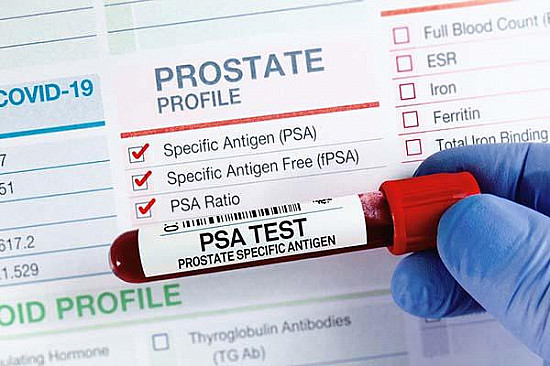Join the healthy heart trend
The rates of heart disease have dropped over the past decade. How can you be part of this pattern?

Image: Photos.com/ Thinkstock
Heart disease continues to be the No. 1 cause of death among men, but there is some good news—fewer older adults have heart disease. A recent report from the National Health and Nutrition Examination Survey found the rates for this condition among people age 60 and older have fallen from 19.5% to 14.9% in the past decade.
What caused this downward trend? And how can you follow?
Three factors may explain the drop, according to the survey researchers: better diet, increased physical activity, and more use of drug therapy.
"While these appear obvious ways to protect against heart disease, there is more to it than just eating right, exercising, and using medication when needed," says Dr. Rory Weiner, a member of Harvard-affiliated Massachusetts General Hospital's Cardiovascular Performance Program. "You have to dig deeper to find the specific patterns that may lower your risk the most."

Diet.
The survey noted that people's dietary habits improved overall and mirrored recommendations from the American Heart Association (AHA) for a heart-healthy diet.
In fact, the overall AHA Healthy Diet Score—a point system that measures how closely you follow the AHA guide-lines—improved by 11.6% among the survey's participants. (See "AHA Healthy Diet Score.")
A few specific items stood out—more people increased their consumption of whole fruit, whole grains, nuts, seeds, and fish. "Many of these foods are associated with lower heart disease," says Dr. Weiner. "Plus foods like nuts, seeds, and whole grains have high amounts of fiber, which help with appetite control and cut down on unhealthy snacking that may contribute to weight gain and thus raise your heart disease risk."
In fact, research published online June 14, 2016, by Circulation looked at a dozen studies representing nearly 800,000 participants and found that people who ate 70 grams per day of whole grains (about four servings) had a 23% lower risk of cardiovascular disease. (See "Whole grains associated with lower death rates," page 8.)
People also drank fewer sugar-sweetened beverages. This falls in line with recent research that links these types of drinks to heart disease.
A report in the April 16, 2016, American Heart Journal found that among more than 22,000 people, most of whom were men, those who drank at least five sugar-sweetened sodas a week were more likely to have early signs of heart disease than people who drank less than one soda weekly.
The other message here is to be consistent with your food choices, adds Dr. Weiner. "Making good food decisions for one day doesn't matter," he says. "But over time they can make a significant change to factors like high blood pressure and cholesterol levels, which raise your heart disease risk."
Exercise.
The standard recommendation is 150 minutes per week of moderate-intensity endurance exercise. It does not matter what you do as long as you meet the intensity level and duration.
A study in the Aug. 12, 2015, Journal of the American College of Cardiology: Heart Failure found this range was associated with a lower risk of future heart failure in men compared with lower and higher levels of activity.
As was the case with diet, consistency is key. "Choose something you enjoy and stick with it," says Dr. Weiner. "Often men think they have to do certain types of endurance exercise, which they may not like and thus have a difficult time staying committed." Many endurance activities fill the bill: stationary biking, cycling, swimming, using elliptical machines, treadmill walking, even aerobics classes.
Medication therapy.
The survey also highlighted the use of medications for preventing heart disease, in particular aspirin therapy and statins.
Aspirin therapy has proved valuable in reducing incidence of a second heart attack, but evidence for its effectiveness in primary prevention is mixed. "It is an individualized decision to take aspirin for those without established heart disease," says Dr. Weiner. "Yet most people find aspirin tolerable without any significant side effects, and it can be a proactive means to prevent heart disease."
Ask your doctor about whether aspirin therapy is right for you. A typical dosage for prevention is no more than 81 milligrams (mg) per day. "But often people take too much—around 325 mg—which can lead to side effects like easy bruising, nosebleeds, or gastrointestinal distress," says Dr. Weiner.
Statins help reduce and manage high cholesterol, but the drugs may also benefit those who have average levels. It is a controversial topic, but some evidence suggests statins have a generalized value and may offer protection if taken before heart disease symptoms appear.
"Statins can be used as an add-on treatment to help improve blood vessel health and limit plaque formation," says Dr. Weiner. A study in the May 26, 2016, New England Journal of Medicine found statins reduced heart attacks by 25% among people at intermediate risk. Again, check with your doctor.
AHA Healthy Diet ScoreHow does your diet add up? If you consume four or five of the below quantities, your diet is "ideal."
Other factors that contribute to a healthy diet:
|
Disclaimer:
As a service to our readers, Harvard Health Publishing provides access to our library of archived content. Please note the date of last review or update on all articles.
No content on this site, regardless of date, should ever be used as a substitute for direct medical advice from your doctor or other qualified clinician.















